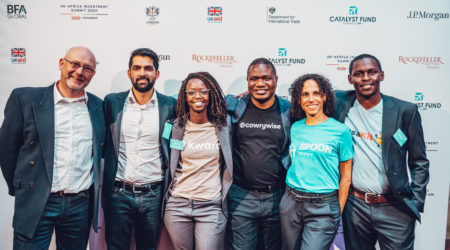Four Steps to Being Agile for Fintech Companies
Banco Maré’s Journey from Working Enthusiastically to Working Deliberately

Startups have great ideas and the best intentions for impact; they are inspired, passionate, and motivated. But too often, they end up frustrated; losing crucial talent and spinning their wheels in the mud.
When the pressure is on and when funds are running low, they are tempted to try a million things out of desperation and in the hope that something will stick. However, these types of hard pushes rarely produce the type of insights leaders need to get things on track. When too many processes are running simultaneously, indications of traction and sparks of success are obscured and causality is impossible to trace. Trying too many ideas at the same time and relying excessively on their intuition ultimately leaves startups unsure of what works, what does not, and why.
The key to avoiding this fate of frustration and failure is the discipline of agility. Adapted from the world of software development, being agile means being flexible and able to respond to changing situations. For fintech startups, being fast is often mistaken for being agile; this misunderstanding is costly financially and in terms of morale.
For Catalyst Fund, being agile is a data-driven approach to research, analysis, and operations that allow for timely, informed decision-making, and avoids costly detours driven by intuition and desperation.

Catalyst Fund worked with Banco Maré — a cryptocurrency provider in the Mare favela in Rio de Janeiro, Brazil — to implement four steps to become agile. When Banco Maré joined the Catalyst Fund in October 2018, they had three products in the field and two in development. They were also planning to expand to other favelas. However, 4000 of Banco Maré’s 9000 registered users were not using the service and the bank did not have a clear idea of how each of their products was faring. They needed to get smart about their offerings.
1. Collect Data Intentionally
When Banco Maré joined BFA’s Catalyst Fund, the team started looking for data. They found that while the bank collected reams of data, it was not organized or utilized to inform decisions or to help them understand who was using the service, when, and why.
BFA worked with Banco Maré to first articulate what questions they needed to answer, and then what data and metrics they needed to collect to address those concerns. The most urgent question was: Who is using the service and why? Segmenting the usage data by service type revealed that only bill pay was being used at a significant level. Although the bank was investing resources and energy behind P2P transfers and merchant payments, their usage was almost nil.
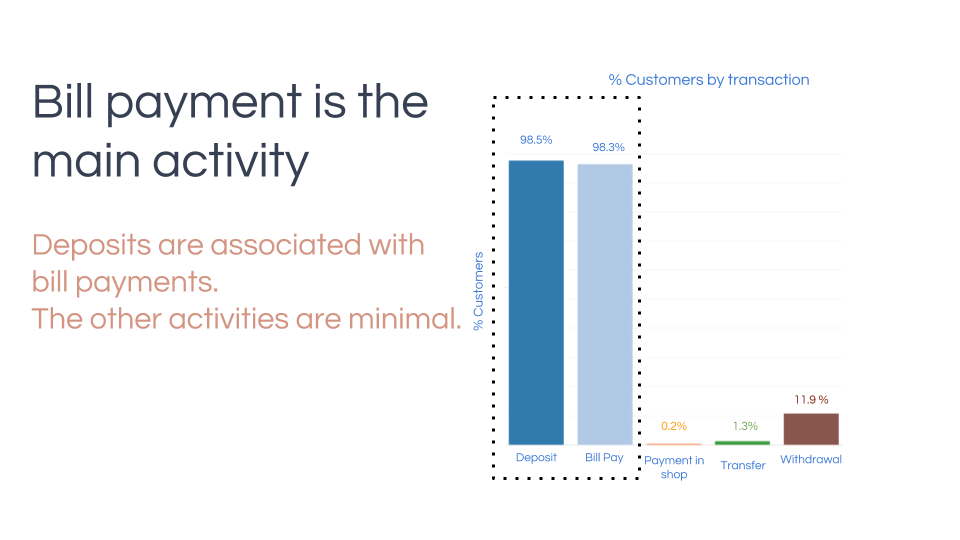
Catalyst Fund also helped Banco Maré identify easy opportunities to collect additional data by integrating Google Analytics into their application and by considering the data generated in the app store (number of downloads, etc.). This data revealed that 1 in 4 users downloading the app uninstalled it the first day, providing important context to the number of non-users of the app. Further research found that these users were generally outside the favela and therefore not eligible to use the service.
2. Focus Only on Key Metrics
Collecting reams of data can make it difficult to know what to monitor carefully and regularly. Too many metrics and too many data points can obscure when something is going wrong and when something is going right. Catalyst Fund helped Banco Maré find the OMTM — one metric that matters— to ground operations and strategy at that moment in time. The OMTM changes as startups mature and as their business models progress, but it is important to be focused on what needs urgent attention.
Using Google Data Studio, the Catalyst Fund automated two dashboards to help Banco Maré focus their attention on the immediate metrics for success. The dashboards make the data easy to interpret and provide immediate feedback on the impact of decisions for fintech startups, being fast is often mistaken for being agile; this misunderstanding is costly financially and in terms of morale.
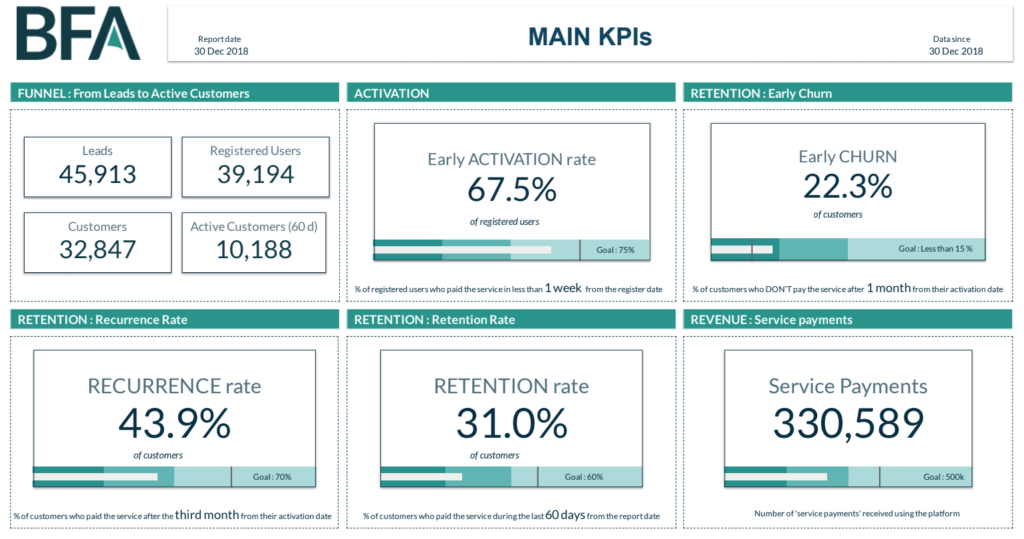
(View the full dashboard here)
3. Use Data to Make Decisions
Banco Maré was making design and operational decisions based on strategic evaluation, but missing the opportunity to integrate data and metrics into their ways of doing. Catalyst Fund helped them identify opportunities to integrate data to make the decision at hand.
Once Banco Maré realized that the real opportunity was in bill pay, it pointed them to a critical churn junction (where they were losing customers) and opportunities for improvement. For example, the data showed that more than one in three customers had not used the service after registering. However, once customers used it, over 70 percent went on to use it multiple times. The bank used these data insights to target follow-up phone calls to registered users to understand their experiences and troubleshoot areas of frustration. Early results suggest this strategy is working and the bank is working to refine the intervention to more consistently convert registered users to frequent customers.
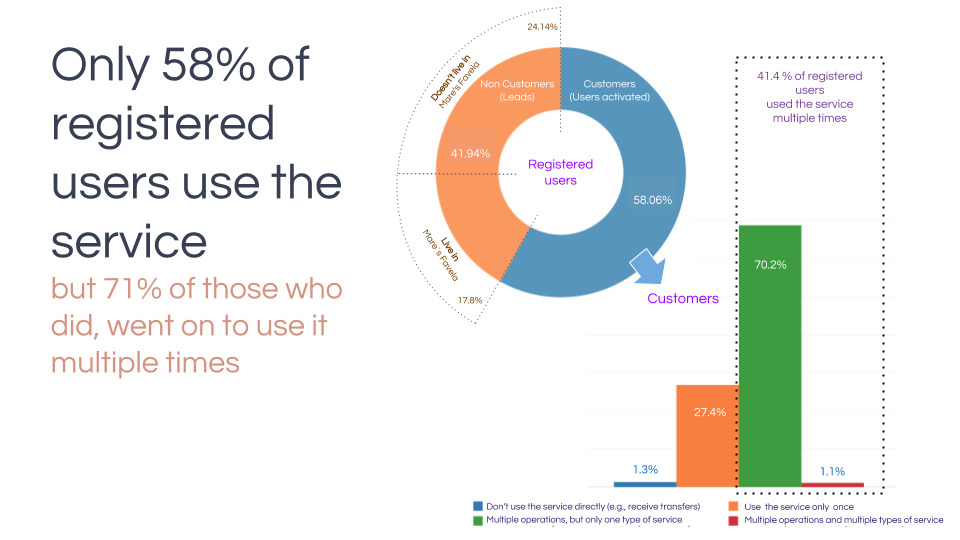
4. Use Structured Experiments to Evaluate Ideas
Measurable experiments are the best way to validate hypotheses and to generate data for making decisions. Tests and pilots should not be considered an expense, but rather an investment in avoiding costly failures in the future.
To structure an experiment, start by stating a hypothesis, which means articulating a measurable impact that is desired as the result of a specific action. For example, Banco Maré’s hypothesis was: calling clients who have not activated their accounts will result in 50 percent of them activating within 24 hours. Depending on the hypothesis, it may be important to construct a control group as a comparison.
Catalyst Fund adapted this worksheet to help Banco Maré be disciplined about experiments:
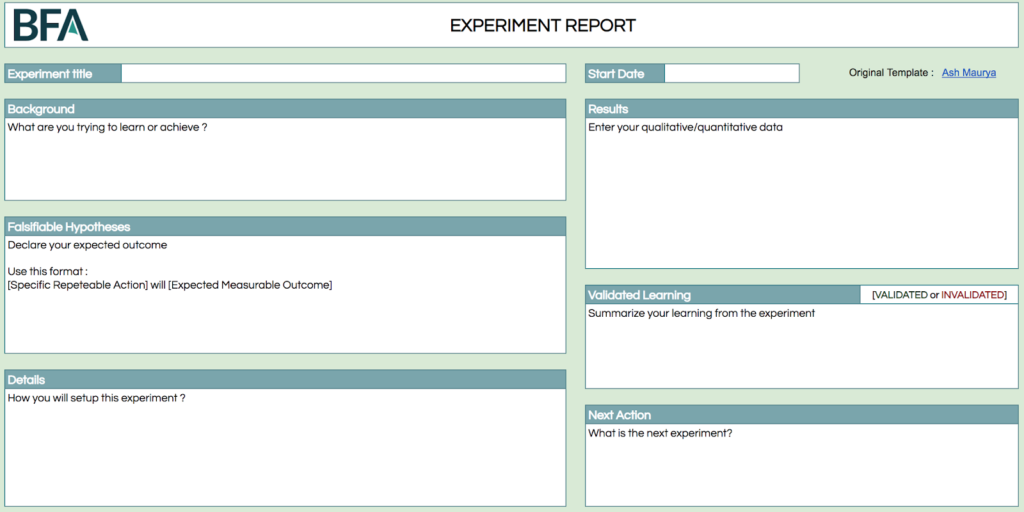
Bottom line:
Startups need to adopt a culture of discipline that is rooted in evidence and data analysis; instead of running, take measured steps!

